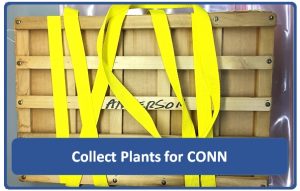The George Safford Torrey Herbarium (CONN) supports botanical research in all disciplines including systematics, taxonomy, biodiversity, ecology, ethnobotany, palaeobotany, evolution and education. The herbarium combines significant palaeobotanical, bryological, lichenological, mycological, phycological and vascular plants totaling over 190,000 specimens, all housed in a fully modern, state-of-the-art facility.
To request a loan, please review our loan policy and then fill out our online form.
An active collecting program adopted by both past and current faculty, staff and students in the University of Connecticut’s Department of Ecology & Evolutionary Biology (EEB) has enriched the collections at CONN with a wealth of specimens from many world regions, which serve as a critical foundation for diverse scientific research activities. Notably, our specimen resources represent one of the most important research collections of native New England plants and include an excellent representation of the region’s imperiled and invasive species. The CONN Herbarium, in conjunction with EEB, promotes the use of its collections as educational resources in plant biology. To further strengthen its scholarly and academic missions, the herbarium committee adopted a strategic plan for 2022–2027.
Director: Dr. Karolina Heyduk
Collection manager: Dr. Sarah Taylor

